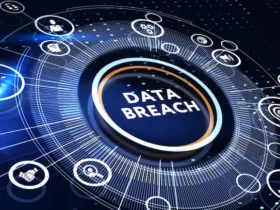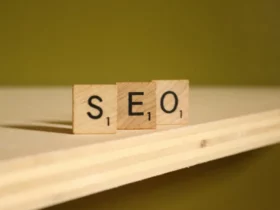In the world of business, clutter is often seen as a hindrance—a distraction that can impede productivity and creativity. However, what if we told you that decluttering goes beyond just organizing your physical workspace? What if we delved into how decluttering, both physical and mental, can fuel business development and pave the way for success? In this blog post, we’ll explore the multifaceted benefits of decluttering and how it can be a catalyst for growth and innovation in business.
The Benefits of Hiring a Waste Disposal Company
Hiring a commercial waste disposal company offers numerous advantages for businesses of all sizes. Firstly, these companies specialize in proper waste management techniques, ensuring compliance with environmental regulations and minimizing the risk of fines or penalties. A commercial waste disposal company has the expertise and resources to handle various types of waste, including hazardous materials, ensuring safe and responsible disposal methods. Additionally, partnering with a waste disposal company saves businesses time and effort, as they take care of waste collection, transportation, and disposal processes.
This allows businesses to focus on their core operations without the hassle of managing waste disposal internally. Furthermore, working with a reputable waste disposal company promotes sustainability by implementing recycling and waste reduction practices, contributing positively to environmental conservation efforts. Overall, hiring a commercial waste disposal company is a smart investment that promotes efficiency, compliance, and environmental responsibility for businesses.
Understanding Decluttering Beyond the Surface
When we talk about decluttering, the first thing that comes to mind is tidying up our desks, filing away paperwork, and getting rid of unnecessary items. While this is undoubtedly important for creating a conducive work environment, decluttering extends far beyond mere physical organization.
At its core, decluttering involves simplifying and streamlining processes, systems, and mindsets. It’s about identifying what’s essential and eliminating what’s extraneous or outdated. This principle applies to tangible assets and intangible aspects such as digital clutter, time management, and mental clarity.
The Impact of Physical Decluttering
Let’s start with the most tangible aspect of decluttering: physical space. A clutter-free workspace has numerous benefits for business development:
Enhanced Productivity: A clean and organized workspace reduces distractions and makes it easier for employees to focus on tasks. This leads to increased productivity and efficiency, ultimately driving business growth.
Improved Creativity: Clutter can stifle creativity by overwhelming the mind and limiting thinking space. A decluttered environment encourages fresh ideas and innovative thinking, which is essential for staying competitive in today’s market.
Professional Image: A clutter-free office conveys professionalism and attention to detail to clients, partners, and investors. It instills confidence in your business and enhances your brand reputation.
Efficient Operations: By decluttering physical spaces, businesses can optimize workflows, reduce errors, and streamline operations. This efficiency translates into cost savings and better resource utilization.
Digital Decluttering and Organizational Development
In the digital age, clutter isn’t limited to physical spaces—it also manifests in the digital realm. Digital clutter, such as excessive emails, redundant files, and disorganized data, can hinder business development in several ways:
Information Overload: Too much digital clutter can overwhelm employees, making it challenging to find relevant information quickly. This leads to wasted time and decreased productivity.
Data Security Risks: Unmanaged digital clutter can pose security risks, such as data breaches or loss of sensitive information. Decluttering digital assets includes implementing robust cybersecurity measures and protecting your business and clients.
Collaboration Challenges: In a cluttered digital environment, collaboration and communication suffer. By decluttering digital channels and using efficient collaboration tools, businesses can foster better teamwork and idea exchange.
Scalability and Adaptability: A clutter-free digital infrastructure is more scalable and adaptable to changing business needs. It allows for smoother integration of new technologies and processes, supporting long-term growth.
Time Management and Mental Decluttering
Beyond physical and digital aspects, effective business development also requires mastering time management and mental clarity. Here’s how decluttering in these areas can drive progress:
Prioritization: Decluttering your schedule involves prioritizing tasks based on importance and urgency. This focus ensures that critical business activities receive the attention they deserve, propelling growth initiatives forward.
Stress Reduction: A cluttered mind leads to stress and burnout, negatively impacting decision-making and creativity. Practicing mindfulness, delegating tasks, and setting boundaries are essential for mental decluttering and well-being.
Strategic Planning: Clearing mental clutter allows business leaders to think strategically and plan for the future effectively. It promotes proactive decision-making and agile responses to market changes, fostering business development strategies that are both robust and flexible.
Learning and Development: Creating space for learning and skill development is crucial for business growth. Decluttering mental barriers and embracing a growth mindset empower employees to innovate, adapt, and contribute meaningfully to organizational development.
The Role of Decluttering in Sustainable Practices
In recent years, sustainability has become a key focus for businesses worldwide. Decluttering aligns well with sustainable practices by promoting efficiency, resource optimization, and mindful consumption:
Waste Reduction: A decluttered approach minimizes waste, whether it’s physical resources, time, or energy. This contributes to environmental sustainability and cost savings for businesses.
Ethical Considerations: Clutter often signifies excess and unnecessary consumption. By adopting a minimalist mindset and ethical procurement practices, businesses can support sustainability efforts and build a positive brand image.
Long-term Viability: Sustainable business development requires long-term thinking and responsible resource management. Decluttering paves the way for scalable, environmentally friendly practices that contribute to business longevity and resilience.

In conclusion, decluttering is not just about tidying up—it’s a strategic approach to fueling business development and achieving sustainable success. By decluttering physical spaces, digital assets, time management practices, and mental barriers, businesses can unlock productivity, innovation, and growth opportunities. Embracing a minimalist mindset, leveraging technology, and fostering a culture of decluttering are key steps toward building a thriving and resilient business in today’s dynamic environment. So, dive deep into decluttering, and watch your business soar to new heights.








